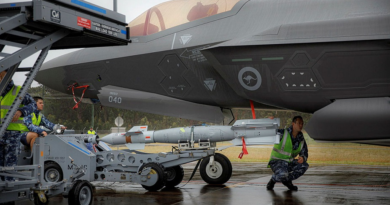Free Airport Warehouse Coordinator Course (6Months)
Airport Warehouse Coordinator:
Airport Warehouse Coordinator is responsible for controlling warehouse inventory by coordinating movement of cargo from aircrafts to wareshouse to shipping and vice versa.

Brief Job Description: Airport Warehouse Coordinator is responsible for supervising and controlling the activities of ground crew in loading, unloading, securing and staging of aircraft cargo in and around the airport premises. He must ensure all cargo is moved from storage area to aircraft and vice versa in a safe and timely manner. He will also be responsible for handling accounting and record keeping activities of the warehouse.
Personal Attributes: The individual must show teamwork, coordination, organisation, planning, time management, reporting skills, inventory control, documentation skills, data entry skills, dependability and supervision skills.


Safety and security procedures:
Comprehending the safety and security procedures
PC1. comply with the organisation’s safety and security policies and procedures
PC2. comply with the regulatory guidelines on safe conduct of operations and maintenance of conditions to thwart any acts of unlawful interference
PC3. report any identified breaches of safety, and security policies and procedures to the designated person
PC4. coordinate with other resources at the workplace (within and outside the organization) to achieve safe and secure environment
PC5. identify and mitigate any safety and security hazards like illness, accidents, fires or acts of unlawful interference if it falls within the limits of individual’s authority
PC6. report any hazards outside the individual’s authority to the relevant person in line with organizational procedures and regulatory guidelines

PC7. follow organisation’s emergency procedures for accidents, fires or acts of unlawful interference
PC8. identify and recommend opportunities for improving health, safety, and security to the designated person
PC9. ensure all health and safety records are updated and procedures well defined.
Organizational
Context
KA1. hazard identification and risk management as defined within the organisational policy and procedures
KA2. legislative requirements and organization’s procedures for maintenance of safety and security standards and individual’s role and responsibilities in relation to this
KA3. how and when to report hazards
KA4. the limits of responsibility for dealing with hazards
KA5. the organisation’s emergency procedures for different emergency situations and the importance of following these

KA6. the importance of maintaining high standards of safety and security
KA7. implications that any non-compliance with safety and security may have on individuals and the organisation.
Technical
Knowledge
KB1. different types of breaches of safety and security and how and when to report these
KB2. evacuation procedures for workers and passengers
KB3. how to summon medical assistance and the emergency services, where necessary
KB4. how to use the health, safety and accident reporting procedures and the importance of these KB5. regulatory guidelines on dealing with safety and security emergencies.
Core Skills/ Generic Skills

| Writing Skills |
| The user/ individual on the job needs to know and understand how to: SA1. complete accurate, well written report in English language detailing the situations of emergency with attention to detail |
| Reading Skills |
| The user/individual on the job needs to know and understand how to: SA2. read instructions, guidelines/procedures/rules |
| Oral Communication (Listening and Speaking skills) |
| The user/individual on the job needs to know and understand how to: SA3. listen to and orally communicate information with all concerned. Decision Making The user/individual on the job needs to know and understand how to: SB1. make decisions on a suitable course of action or response if permitted by the authority matrix Plan and Organize The user/individual on the job needs to know and understand: SB2. monitor efficient functioning of all activities SB3. plan and organise work to achieve targets and deadlines Customer Centricity The user/individual on the job needs to know and understand how to: SB4. communicate with customers in a courteous manner SB5. maintain effective relationship with the customers Problem Solving The user/individual on the job needs to know and understand how to: SB6. identify trends/common causes for errors and suggest possible solutions to the supervisor / management SB7. identify and correct errors Analytical Thinking The user/individual on the job needs to know and understand how to: SB8. analyses best possible solutions (cost, time, effort, etc.) suited for operations Critical Thinking The user/individual on the job needs to know and understand how to: SB9. concentrate on task at hand and complete it without errors SB10. apply balanced judgments to different situations  Coordinate warehouse activities at the airport Performance Criteria Coordinate warehouse activities PC1. coordinate the activities of ground crew in the loading, unloading, securing, and staging of aircraft cargo PC2. observe, receive and otherwise obtain information from all relevant resources PC3. analyse information and evaluate results to choose the best solutions and solve problems PC4. communicate and provide information to supervisor, co-workers and subordinates PC5. organise, plan and prioritize work PC6. coordinate the work and activities of others and getting members of a group to work together to accomplish tasks . PC7. develop constructive and cooperative working relationship with others PC8. perform cargo build up and break down as told by supervisors and also ensure that processes are in compliance with the company cargo SOP and airline’s standards well PC9. identify and act upon any irregularities which occur during either import or export PC10. gather relevant new information relating to the current job at hand PC11. determine whether events or processes comply with laws, regulations or standards PC12. encourage and build mutual trust, respect and corporation among team members PC13. check import & export documentation to determine cargo contents PC14. retrieve stored items and trace lost shipments as necessary PC15. inspect and count items received and check them against documents, recording shortages and rejecting damages goods PC16. notify consignees or customers of the arrival freight and arrange for delivery PC17. keep records of all goods shipped, received and stored PC18. coordinate and supervise activities of workers engaged in loading and unloading PC19. directly participate in cargo handling in order to ensure completeness of load and even distribution of weight Knowledge and Understanding Organizational Context KA1. procedures and policies of the organisation relevant to his/her work KA2. fill forms related to transportation of cargo and mail by air KA3. policies and procedures for handling sensitive cargo KA4. appropriate reporting processes Technical Knowledge KB1. procedure for accepting cargo and the requisite documents for different types of cargo example dangerous goods KB2. how to identify hidden dangerous goods KB3. information contained on cargo airway bills KB4. approved airport codes KB5. types of loading devices like ULDs, pallets, trolleys KB6. how to use the loading equipment in safe manner and the complementary safe manual handling procedures KB7. the consequences of inappropriate handling of cargo KB8. protection available for loads in different weather conditions KB9. appropriate reporting processes as per regulatory guidelines Core Skills/ Generic Skills Writing Skills The user/ individual on the job needs to know and understand how to: SA1. fill any forms related to cargo warehousing SA2. keep records of all goods shipped, received and stored Reading Skills The user/individual on the job needs to know and understand how to: SA3. read the schedule and plan for cargo movement SA4. read and understand the instructions and conditions during cargo movement SA5. read and interpret guidelines with regards to dangerous goods by air SA6. share best practices with peers and juniors Oral Communication (Listening and Speaking skills) The user/individual on the job needs to know and understand how to: SA7. communicate clearly with supervisor and peers SA8. regularly communicate with all employees in the chain of activities to ensure activities are running smoothly SA9. share best practices with peers and juniors Professional Skills Decision Making The user/individual on the job needs to know and understand how to: SB1. decide if the cargo and mail are for acceptance and transportation by air Plan and Organize The user/individual on the job needs to know and understand SB3. monitor smooth functioning of all activities SB4. prioritise and execute tasks in within the schedule time limits Customer Centricity The user/individual on the job needs to know and understand: SB5. communicate with customers with etiquettes and share all relevant information Problem Solving: The user/individual on the job need to know and understand: SB6. identify trends/ common causes for errors and suggest possible solutions to the supervisor/ management SB7. identify and correct errors Analytical Skills The user/individual on the job needs to know and understand how to: SB8. analyse on best possible solution (cost, time, effort, etc) suited for customer requirement Critical Thinking Skills The user/individual on the job needs to know and understand how to: SB9. concentrate on task at hand and complete it without errors  Work Effectively in a Te am Performance Criteria Support the work team PC1. display courteous and helpful behaviour at all times. PC2. take opportunities to enhance the level of assistance offered to colleagues. PC3. meet all reasonable requests for assistance within acceptable workplace timeframes. PC4. complete allocated tasks as required. PC5. seek assistance when difficulties arise. PC6. use questioning techniques to clarify instructions or responsibilities. PC7. identify and display a non discriminatory attitude in all contacts with customers and other staff members Maintain personal presentation PC8. observe appropriate dress code and presentation as required by the workplace, job role and level of customer contact. PC9. follow personal hygiene procedures according to organisational policy and relevant legislation. Develop effective work habits PC10. interpret, confirm and act on workplace information, instructions and procedures relevant to the particular task. PC11. interpret, confirm and act on legal requirements in regard to anti- discrimination, sexual harassment and bullying. PC12. ask questions to seek and clarify workplace information. PC13. plan and organise daily work routine within the scope of the job role. PC14. prioritise and complete tasks according to required timeframes. PC15. identify work and personal priorities and achieve a balance between competing priorities. Knowledge and Understanding Organisational Context KA1. the policies and procedures relating to the job role. KA2. the value system of the organisation. KA3. employee rights and obligations. KA4. the reporting hierarchy and escalation matrix. Technical Knowledge KB1. ask questions to identify and confirm requirements. KB2. follow routine instructions through clear and direct communication. KB3. use language and concepts appropriate to cultural differences. KB4. use and interpret non-verbal communication. KB5. the scope of information or materials required within the parameters of the job role. KB6. consequences of poor team participation on job outcomes. KB7. work health and safety requirements. Core Skills/ Generic Skills Writing Skills, On the job the individual needs to be able to: SA1. complete documentation accurately. SA2. write simple reports when required. Reading Skills On the job the individual needs to be able to: SA3. read information accurately. SA4. read and interpret data sheets. Oral Communication (Listening and Speaking skills) The user/individual on the job needs to know and understand how to: SA5. listen to and orally communicate information with all concerned Professional Skills Decision Making On the job the individual needs to be able to: SB1. make appropriate decisions regarding the responsibilities of the job role. Plan and Organise The user/individual on the job needs to know and understand how to: SB2. monitor efficient functioning of all activities SB3. plan and organise work to achieve targets and deadlines Customer Centricity The user/individual on the job needs to know and understand how to: SB4. communicate with passengers and other stakeholders in a courteous manner SB5. maintain effective work relationship Problem Solving The user/individual on the job needs to know and understand how to: SB6. identify trends/common causes for errors and suggest possible solutions to the supervisor / management SB7. identify and correct errors Analytical Thinking The user/individual on the job needs to know and understand how to: SB8. analyse best possible solutions (cost, time, effort, etc.) suited for operations Critical Thinking The user/individual on the job needs to know and understand how to: SB9. concentrate on task at hand and complete it without errors SB10. apply balanced judgments to different situations  Model Curriculum Airport Warehouse Coordinator safety and security procedures comply with the organization’s safety and security policies and procedures comply with the regulatory guidelines on safe conduct of operations and maintenance of conditions to thwart any acts of unlawful interference report any identified breaches of safety, and security policies and procedures to the designated person coordinate with other resources at the workplace (within and outside the organization) to achieve safe and secure environment identify and mitigate any safety and security hazards like illness, accidents, fires or acts of unlawful interference if it falls within the limits of individual’s authority report any hazards outside the individual’s authority to the relevant person in line with organizational procedures and regulatory guidelines follow organization’s emergency procedures for accidents, fires or acts of unlawful interference identify and recommend opportunities for improving health, safety, and security to the designated person ensure all health and safety records are updated and procedures well defined Supervise and coordinate warehouse activities · coordinate the activities of ground crew in the loading, unloading, securing, and staging of aircraft cargo. observe, receive and otherwise obtain information from all relevant resources analyse information and evaluate results to choose the best solutions and solve problems communicate and provide information to supervisor, co-workers and subordinates organise, plan and prioritize work coordinate the work and activities of others and getting members of a group to work together to accomplish tasks develop constructive and cooperative working relationship with others · perform cargo build up and break down as told by supervisors and also ensure that processes are in compliance with the company cargo SOP and airline’s standards well identify and act upon any irregularities which occur during either import or export gather relevant new information relating to the current job at hand determine whether events or processes comply with laws, regulations or standards encourage and build mutual trust, respect and corporation among team members check import & export documentation to determine cargo contents retrieve stored items and trace lost shipments as necessary inspect and count items received and check them against documents, recording shortages and rejecting damages goods notify consignees or customers of the arrival freight and arrange for delivery keep records of all goods shipped, received and stored coordinate and supervise activities of workers engaged in loading and unloading directly participate in cargo handling in order to ensure completeness of load and even distribution of weight Work Effectively in a Team di splay courteous and helpful behaviour at all times take opportunities to enhance the level of assistance offered to colleagues. meet all reasonable requests for assistance within acceptable workplace timeframes complete allocated tasks as required seek assistance when difficulties arise. use questioning techniques to clarify inst ructions or responsibilities identify and display a non discriminatory attitude in all contacts with customers and other staff members observe appropriate dress code and presentation as required by the workplace, job role and level of customer contact follow personal hygiene procedures according to organisational policy and relevant legislation interpret, confirm and act on workplace information, instructions and procedures relevant to the particular task interpret, confirm and act on legal requirements in regard to anti- discrimination, sexual harassment and bullying ask questions to seek and clarify workplace information plan and organise daily work routine within the scope of the job role prioritise and complete tasks according to required timeframes identify work and personal priorities and achieve a balance between competing priorities Unique equipment used; personal protective equipment (PPE) (consisting of safety jacket & safety shoes) First aid kit Fork Lift Basic fire safety aids Air Cargo Management system mock-up simulator (software installed on server with minimum 5 clients) Handheld scanner (minimum 5) linked with cargo management software system Guidelines for Assessment 1. Criteria for assessment for each Qualification Pack will be created by the Sector Skill Council. Each Performance Criteria (PC) will be assigned marks proportional to its importance in NOS. SSC will also lay down proportion of marks for Theory and Skills Practical for each PC. 2. The assessment for the theory part will be based on knowledge bank of questions created by the SSC. 3. Assessment will be conducted for all compulsory NOS, and where applicable, on the selected elective/option NOS/set of NOS. 4. Individual assessment agencies will create unique question papers for theory part for each candidate at each examination/training center (as per assessment criteria below). 4. Individual assessment agencies will create unique evaluations for skill practical for every student at each examination/training center based on this criterion. 5. To pass the Qualification Pack , every trainee should score a minimum of 60% of aggregate marks to successfully clear the assessment. 6. In case of unsuccessful completion, the trainee may seek reassessment on the Qualification Pack. |








